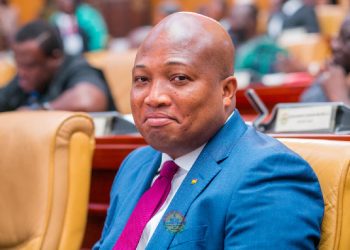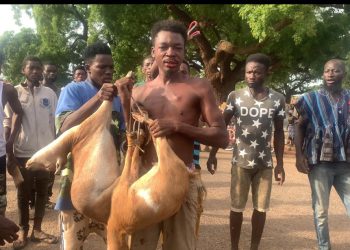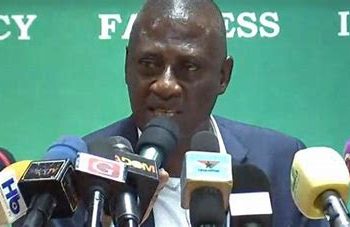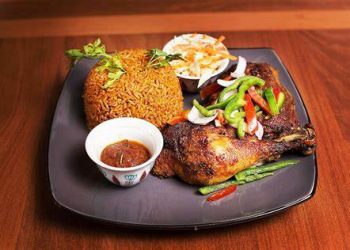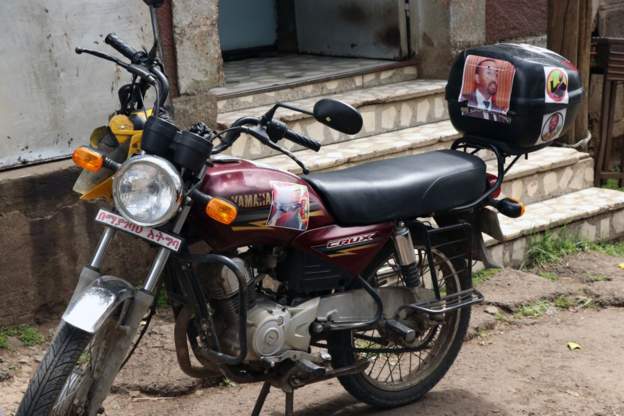I have listened to the video of the Nigerian professor, Augustine Nwagbara regarding remarks on Ghana and how Nigerians are treated here and strategies to counter that treatment. I have seen friends I respect respond to this and I have been utterly disappointed, especially at the response from the University of Education, Winneba. Here is my take.
First of all, we need to read/listen, not to respond but to actually understand. The GhanaWeb article which sparked the entire debacle is a terrible propagandistic piece full of distortion, half-truths, incitement, sensationalism, and to top it off, littered with basic factual errors which marks it off as unprofessional nonsense.
This piece of trash masquerading as news started off with a terribly sensational headline that any serious reader should have taken his or her time to digest carefully. The headline reads: “Nigerian Professor hatches plot to ‘tear up’ Ghana.” Any reader with minimal understanding of how the language works should have paused with this headline. You will notice that the operative item in the headline “tear up” is in quotes. Why else was this in quotes but to draw out for non-discerning readers the sensational emotional reactions its elicited? I took my time to watch the video because I was looking for where in the video the professor said anything to the effect of tearing up Ghana. Obviously to my expectations, not one instance in the video did Prof Nwagbara said anything about tarnishing the image of Ghana much less tearing Ghana up.
In point of fact, he basically asked for the Nigerian community to leverage the skills and man power they have to take over the image-making of their people in Ghana instead of leaving it to vulture media houses with terrible headlines like the one on GhanaWeb. He talked about their immense human resources in great use in Ghana and elsewhere around the world, and he is absolutely right. He talked about the exorbitant prices Nigerian students pay in Ghanaian universities, and he is absolutely right even if the exact numbers differ. He talked about Nigeria being the big but irresponsible brother, and he is absolutely right. Every single thing he said in the video is correct and to the point. If you take the emotional response to it away from the issue, nothing he said was wrong, perhaps with the exception of tagging Ghanaian universities as 80% inferior to Nigerian ones for that is entirely based on conjecture and not facts. But as a Nigerian at a time when his country is receiving horrific press coverage, you might understand the need for hyperbole when trying to talk up his country’s image.
I want to spare one more paragraph on that terribly written GhanaWeb article before I proceed. They open by wrongly spelling Prof. Nwagbara’s name, which should have signaled to discerning readers this was shoddy work. It falsely says he’s a professor at the University of Ghana which is false again. He was actually on sabbatical at Legon when I was there between 2011 and 2012. It plunges ahead with extreme sensationalist language that is completely at variance with the video. It gives commentary and interpretation at the onset instead of quoting the Professor’s words and later putting its commentary. So, it frames in terrible light whatever its readers will read later on when it puts in the quotes. This is terrible journalism. Obviously, it was meant to cause outrage and it has. He never said anything about Ghana’s image abroad except for Nigerian media to come and document the unfair treatment of Nigerians here. But by the way this article framed his conversation, they turned this into a plot to destroy Ghana’s image internationally. What a wretched thing to do. They keep using inciting language throughout the article like “completely destroy” the image of Ghana among others and it has yielded desired emotional results from various quarters.
As expected of media incitement, poor desperate people usually respond the quickest and with deadly consequences. Miscreants at Suame Magazine allegedly ransacked Nigerian shops yesterday to my utter but not unexpected dismay. In Ghana, I have often cherished our free media landscape and I will always cherish it. But the media commission needs to sit up with regards to both print online publications. That kind of headline from GhanaWeb cannot be allowed to stand.That article is pure incitement against a specific group of people in our country and government must disseminate rules regarding this. The attack on Nigerian shops at Suame Magazine is a dastardly act but its roots are at the media reportage that singles out Nigerians as criminal and those working against Ghana. This kind of reportage invites the kind of response we saw in Suame Magazine.
I have also seen friends I respect say that the professor should be sacked or called in for questioning by the CID/BNI or banned from Ghana. I have seen friends argue for restrictions on Nigerians all to my dismay and disappointment. This Nigerian debacle is purely a media creation. In Ghana, people get kidnapped all the time. We have a lot of missing persons some of whom are never found in Ghana. And Ghana is not unique in this. In the US or UK, kidnapping and missing people are a weekly affair. It is burying your head in the sand to claim that kidnapping in Ghana is a Nigerian invention. The way our media has reported on the recent kidnappings is quite worryingly xenophobic with headlines from The Chronicle like “Nigerians at it Again.”
But in the recent kidnapping incident, among the culprits, Ghanaians numbered higher than Nigerians. These kinds of lazy and inciteful headlines are reminiscent of how Ghanaian media treats incidents involving Fulani which I have written about elsewhere. I was telling a friend yesterday that if he thinks this kind of reportage is correct, then we must ask for the ethnic groups of all persons caught in criminal acts in Ghana every year given that we like to apportion criminality to certain groups of people. This kind of xenophobic mindset about how Ghanaians are peaceful and it is the Nigerians who are trouble causers is a childish emotional response to a complex issue and people calling for these extreme measures must ask themselves and prod their hearts about the good they are doing. I think asking for the CID to invite a professor for speaking his mind is pretty bad. And of course, the CID called him in for questioning. This is harassment and waste of the professor’s time. Could the CID not see the video for themselves or were they also taken in by the nonsensical headlines and commentary?
The worst response I have seen from this incident is the reaction of the University of Education, Winneba. They have allegedly dismissed him from the University with the excuse that he made damning statements about the University. I can understand saying that his assessment that Ghanaian universities are inferior to Nigerian ones puts the University in bad light but to go the extreme of dismissing him outright seem to go against academic freedom which all universities must engender. He was clandestinely recorded, so his utterances, embarrassing as it may be was not intentional. In a private meeting, every individual must be accorded the right to his private thoughts. He didn’t mount a public national or international platform to make these claims. This was in a private gathering. I can assure you that I have witnessed Ghanaian professors in Ghana saying unsavory things about our universities even as they teach there. Would our universities dismiss them too if someone were to clandestinely record them and air it to the public? This is breach of basic freedoms along with breach of his academic freedom and the way UEW has reacted makes Ghana look like some authoritarian country.
I want to end by saying this: this media reportage on this issue with our Nigerian brothers is leading us to a place none of us want to be. Media reportage in South Africa led to the xenophobic attacks against Nigerians, Ghanaians, and other Africans in that country. We are well aware of the terrible consequences of media incitement in the Rwandan Genocide. We need something to be done regarding this unscrupulous and terrible media headlines about our Nigerian brothers and sisters. We must stem this tide of hatred our media is on the tear about. Ghana, to many Nigerians, is a second home. When you ask Nigerian or Ghanaian citizens which is our best friend, we say one another. We have too much social and economic and historical ties to squander it on foolish sensational headlines and xenophobia. We must look to our better angels instead of to our worst instincts. From the individual to the institutional, we must sit up. We must remember our strong ties and cling on to them.








